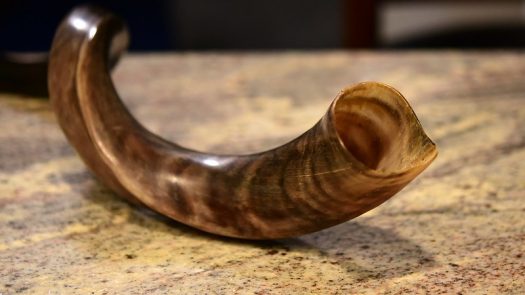
Weekly Dvar Torah: Elul the Month of Reckoning
On Rosh Chodesh Elul we start saying chapter 27 of Tehillim for the entire month until Hoshana Rabba.
This is a very personal prayer between us and Hashem, we express our desire to be close to Him, and our faith in Him, and our dependence on a loving G-d who looks after us.
In verse 8 we say:
לְךָ֚ | אָמַ֣ר לִ֖בִּי בַּקְּשׁ֣וּ פָנָ֑י אֶת־פָּנֶ֖יךָ הֹ’ אֲבַקֵּֽשׁ
Of You, my heart says, “Seek My face.” Your face, O Lord, I will seek.
The Frierdiker Rebbe asks, why are we talking from the emotional heart when G-dliness is about understanding, like it says “know the G-d of your father?
Also, what is this reference to seeking (and connecting) to G-d’s face?
The Rebbe explains this in context of this prayer being said during the month of Elul.
During the month of Elul, we have an arousal and yearning to be close to Hashem, and this arousal comes from the heart in which rests the Pintele Yid, the spark of G-d that wants to be close to its source.
Therefore, this notion comes from the heart instead of the mind.
And the face that we are seeking is the Ponim, which is translated as ‘face’, but also means the ‘inside’, and Chassidus highlights the difference between facial connection which is an internal connection, versus a backhanded connection, the opposite of facial connection.
During Elul we seek G-d’s closeness to connect to Him in an internal facial manner.
And the Rebbe goes on to describe how we go about getting closer to Hashem.
Elul is the month of reckoning.
To run a good business, one must take stock every now and then, to analyze the business practices, to reinforce the strengths and correct the weaknesses, in order to reassure better future business success.
This is what we do in Elul.
We review what’s going on with life, we look at the strong points to reinforce them, and the weaknesses to get rid of them.
What comes to mind as we look at ourselves as the most elevated and most intellectual and productive of all creation, we run the world, we control the produce, we use the animals, we make use of the inanimate for shelter and all else, we are the top of the world.
So why is it that the rest of creation finds food and shelter readily available, and we humans need to toil and sweat, and many times we must travel, in order to earn our keep just to survive?
If I am the choicest creature, why do I have to invest so much energy and toiling to put bread on the table to feed my family? Why isn’t my food within easy reach? Why must I travel to make good deals to achieve wealth?
This is why we search for the inside, the Ponim, the inner meaning behind all of this.
Because we are the choicest of creation, G-d made everything in this world for us, and He put us here to do a mission for Him.
We must work hard and we must go places, because we have things to accomplish in those places by overcoming challenges and obstacles, and not get distracted and lose sight of purpose.
We meet someone during business and we share a word of Torah, we share some brotherly love, we stop in middle of the day to Daven Mincha, we share some of our profits and give Tzedakah, we come to a distant place and there we may be the first Jew ever to make a Bracha on G-d’s food.
This is the inner purpose of our travails in life, and during Elul we reflect on all of this, what am I doing in this world, what am I living for.
Sometimes a person is blessed and he is catapulted by the king to the highest position of power and riches, and while he indulges in power and pleasures, he forgets about who put him there, he thinks it’s all about him and his mighty-self, until the king reminds him who is boss.
During Elul, we remember who put us there, and what our mission is, and this brings us closer to our father and king, and we are overcome with a desire to please Him for all that He gives us.
By making a fair account to correct the deficiencies of the past, and accepting G-d’s will and mission that He entrusted us with, we merit a sweet and happy new year, materially and spiritually.
Have an aroused and yearningly Shabbos,
Gut Shabbos, Gut Chodesh
Rabbi Yosef Katzman















